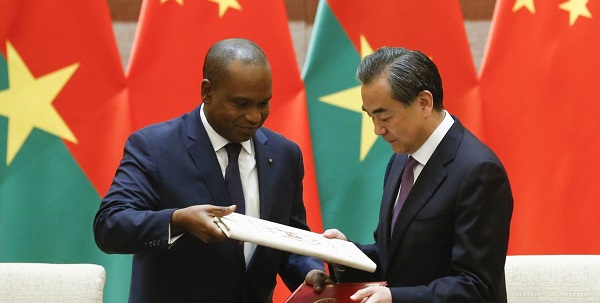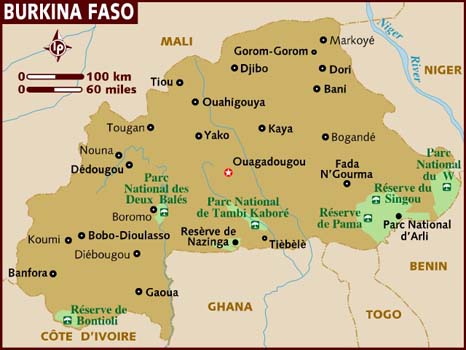Burkina Faso and China grow closer
January 8, 2019 | Expert Insights

Burkina Faso President Roch Marc Christian Kabore has pledged to further the development of ties with China.
Kabore made the remarks in the capital, Ouagadougou ,while meeting with Chinese State Councillor and Foreign Minister Wang Yi who are on an official visit to the country.
Background
China and Burkina Faso have had an inconsistent relation. From 1961 until 1973, Burkina Faso recognized the Republic of China (Taiwan) as the sole legitimate representative in China, instead of the PRC.
From September 15, 1973, to February 4, 1994, Ouagadougou and its five successive presidents had maintained a modest relationship with Beijing (in terms of projects and financing). Opportunistic, this recognition came two years after the accession of so-called mainland China to the UN Security Council.
In 1971, Burkina Faso (then still "Upper Volta") opposed, with the United States, the Resolution 2758 of the United Nations General Assembly on October 25, 1971. Maurice Yaméogo (president from 1959 to 1966) had, however, maintained relations with Beijing before the formalization of bilateral relations, that is to say during the Taiwanese-Burkinabe cooperation. But Burkina Faso is the only African state to have twice recognized the Republic of China: in 1964 and in 1994.
On 24 May 2018, Burkina Faso again cut ties with the Republic of China and two days later, on 26 May, Burkina Faso re-established diplomatic relations with the People's Republic of China.

Analysis
Chinese state councillor Wang Yi is on a 4-country tour of Africa starting with Burkina Faso.
Reiterating that there is only one China in the world, the president of Burkina Faso noted that his country is committed to strengthening its relations with Beijing based on the one-China principle. According to Kabore, Burkina Faso is ready to enhance communications with China to safeguard the interests of African countries and developing countries.
The Chinese state councillor said that Kabore’s major decision of resuming diplomatic relations with China has won unanimous support from the people of Burkina Faso, and has been widely welcomed in the African continent.
Wang said that the resumption of diplomatic relations between the two countries has laid a political foundation for bilateral cooperation, and China is willing to work with Burkina Faso to deepen peace and security cooperation. Burkina Faso re-established ties with China in May 2018, after cutting off ties with the island of Taiwan. Wang also met with his counterpart, the foreign minister of Burkina Faso Alpha Barry.
During a joint press conference attended by Wang and Barry, Wang said China has played a unique and constructive role in safeguarding peace and promoting security in Africa. He said that peace serves as the prerequisite and guarantee for the development of the African continent, adding that China has long been mediating in hot-spot issues in Africa and encouraging Africans to solve their problems in their own way.
Wang also said that China has stepped up support for Africa’s peace and security under the framework of the Forum on China-Africa Cooperation, including the building of the African Standby Force and the African Capacity for Immediate Response to Crisis.
Burkina Faso is the second stop of Wang’s five-day traditional New Year trip to Africa. The trip, which started recently, also includes visits to Ethiopia, Gambia, and Senegal.
The West African nation in May ended its official diplomatic relations with Taiwan’s government as Beijing increasingly tries to isolate Taiwan on the global stage.
Taiwan has accused China of using dollar diplomacy to lure away its allies, promising generous aid packages - charges China has denied. Some countries have switched back and forth between Beijing and Taipei several times. It is the second time Burkina has cut ties with Taiwan. It last did so in 1973, before resuming relations with Taipei in 1994.
China is Africa’s largest trade partner, with massive investments in mining, construction and banking, though it has been less active to date in Burkina Faso.
Assessment
Our assessment is that China is using its economic strength as a strategic weapon to wean African allies away from Taiwan. We believe Africa’s vast mineral wealth would be a conducive source for accessing critical industrial raw material that Taiwan needs for its well regarded electronic manufacturing industry. We also feel that by limiting direct access to Africa, China is attempting to cap the growth that Taiwan would otherwise independently like to harness.








Comments